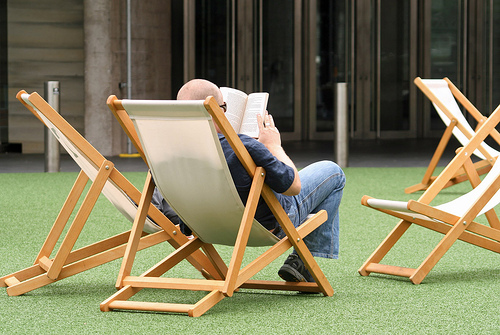I cannot tell you that I lose nothing, but whatever I do lose I can tell you how and why the loss occurred. – Seneca
What does that mean?
In the original text, he is moving between discussing the value of time and money, but the title of the section is on saving time.
In time, each day, all of us are equal. I may choose to spend more of it sleeping than another, or reading, or some other activity, but those are our choices. How we spend it, or invest it, is up to us.
Some of our time is managed, or otherwise beyond our control. Things like the time when we got stuck in traffic, or when a sick relative kept us up all night. That’s covered by the latter half of the quote.
The trick is to either choose where you spend it, or know where it went. To let it slip away, to lose it, that is not very prudent nor is it very wise.
Why is being deliberate important?
We can choose what we do, or we can simply drift forward in the stream of time. Sometimes the former can be difficult, and the latter is usually much easier. And there are times for both, but to do either without first thinking can lead to loss of more than just a little time, right?
What is appropriate for a vacation day on a river is different than considering a major purchase or a business case, right? Relaxing and going with the flow is a very useful thing if you are trying to get rid of stress. But if you are making a critical life decision, whether at work or in your personal life, letting things slip by likely isn’t the best plan.
Imagine living your whole life like the stereotypical beach bum (or ski bum or whatever is appropriate for your part of the world). It may be great for a period of time, but would you want to make a career of it? The hours may be nice, but what about the retirement plan?
I’m sure that there are those who manage to do those things as well (Tony Hawk comes to mind). While the initial experience may have happened by them drifting into it, but eventually there was some deliberate action on their part. Consider what you want to do, get started, and make deliberate adjustments as circumstances change.
Where can I apply this in my life?
With so many things in life, this quote is about striking a balance. Know what you will do, and be deliberate about those things. For the overly regimented, like myself, you even plan when you will relax, and simply go with the flow. But it is planned and you know how and why that time was spent.
When you feel a need to relax, decide to take a specific amount of time and relax. Watch the Big Game (based on your preferred sport, World Cup is on as of this writing). Go shopping (but know what you will spend). Grab a book and a chunk of couch or floor, and visit your favorite alternate reality.
But when the time is up, wrap things up and get back to what you need to get done. Relaxing isn’t wrong, any more than working isn’t wrong. Too much of either isn’t good for you. Find your balance, but do it deliberately, that you understand yourself, your needs, and where all that time went.
Take a moment to consider what you did yesterday. What did you do, when did you do it, and why did you do that? How much of your day is unaccounted for, or used in a way you might now consider less than stellar? I know that my day had some of that. What might you do differently going forward? What can you learn from the experience?
Now look back over the last week. How well did that go? How much of your time can you list, and how much slipped through your fingers? How much time do you wish you had back so you could make better use of it? If you’re like me, there is at least half a day worth of time you’d like back.
Take a moment and consider what you would have done with that time you either lost or didn’t use as well as you could have. How will next week be different? What will you do more of, and of what will you do less? It is your life, your hours, your choice. Choose what is best for you.
Live your passion, but do so with an idea, a plan, and keep track of your most precious resource, time. Know where you spent it, or how it was lost and why.
From: Twitter, @stoiclessons
confirmed at : http://www.stoics.com/seneca_epistles_book_1.html#‘I1 3rd paragraph – this is probably from an alternate translation.
Photo by Alan Cleaver








Interesting post today, thanks.
Glad you stopped by, and that you liked it. Hope to hear from you again.